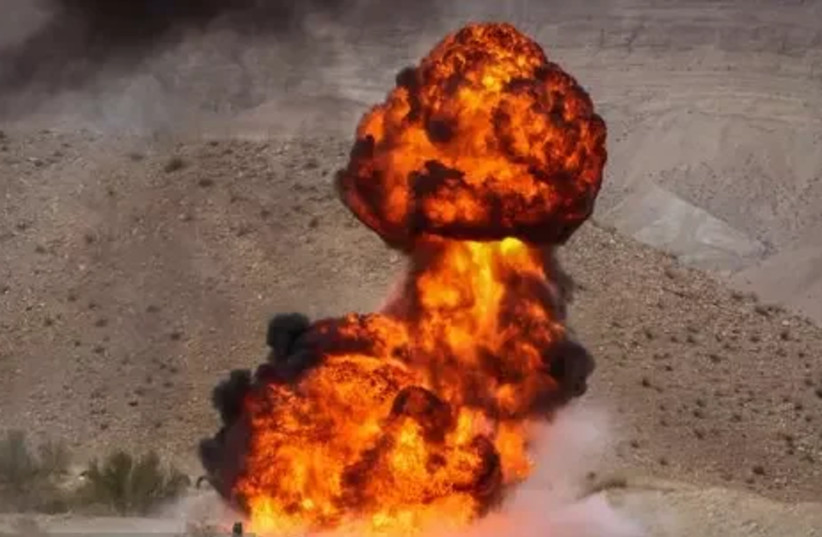North Korea and Russia have both conducted recent missile tests - which is important because they are part of a large context of missile tests and technology that may also be influencing Iran.
Iran has developed long-range ballistic missiles in recent years and has plowed money into various missile projects, and their nuclear program is linked to the missile program because the missile program is made more dangerous by the possibility that its nuclear program could be weaponized. For this reason, it’s important to note the increase in missile tests by North Korea and Russia.
North Korea says it "tested a new solid-fuel intercontinental ballistic missile - its ‘most powerful’ missile to date,” according to the BBC. The test was heralded by North Korea’s state media and has caused concern in Japan and the Pacific.
“Solid-fuel missiles can be fired more quickly than liquid-fuel ones, making them harder to intercept. But analysts say they are not without downsides. South Korea maintains that the North will need more time to develop a fully operational solid-fuel ICBM,” the BBC notes. “This is the first time the North has test-fired a solid-fuel ICBM after years of testing solid-fuel short-range missiles. It has tested various ICBMs, but these were powered by liquid propellants, which must be fuelled directly ahead of launch - a process that can take hours.”
Meanwhile, Russia is putting its fleet on alert in the Pacific. CBS noted that “the entire Russian Pacific Fleet was put on high alert on Friday for snap drills that will involve practice missile launches in a massive show of force amid tensions with the West over the fighting in Ukraine.”

Russia’s Defense Minister says this is in relation to new drills Russia will conduct. “Along with the missile launches, the drills will also involve nuclear-capable strategic bombers and other warplanes besides the naval aviation of the Pacific Fleet, Shoigu said,” CBS noted.
Russian state media TASS also said last week, citing the Defense Ministry, that “the Strategic Missile Forces have carried out a test-launch of the intercontinental ballistic missile from the Kapustin Yar training ground in Russia’s Astrakhan Region.” The report in Russia goes on to note that earlier this week, "the combat crew of the Strategic Missile Troops successfully launched the intercontinental ballistic missile of the land-based mobile missile system from the Kapustin Yar State Central Multiservice Training Ground in the Astrakhan Region.”
Raising eyebrows
Concerns that North Korea has developed a new type of weapon and that Russia is practicing with missiles should raise eyebrows. It also comes as countries are seeking new hypersonic missile technology. Iran also announced this weekend that it developed and tested a new guided anti-armor missile.
The overall context comes as Russia and China are becoming closer in recent years, and the latter has a new 25-year deal with Iran - who is supplying Russia with drones. All of these countries are now potentially working in concert on some issues. Missile technology could be a spillover in these ties.
Iran wants to expand its missile program and has also recently reconciled with Saudi Arabia - which could lead Iran to shift resources from Yemen to its missile programs and also to threats that it could project into Iraq and Syria. For this reason, the North Korean and Russian missile tests have greater importance, and the way the West responds to these tests is also important.
The new developments in China related to missile technology also matter, as does North Korea’s continuing threats against Japan. In a globalized world, the reactions of the West to the threats in the Pacific are as important as the reactions to Iran’s nuclear program in bolstering security in these various regions.
